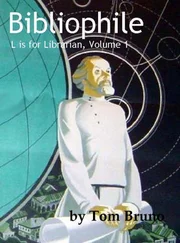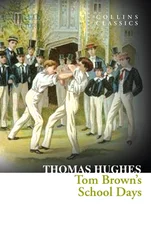Thomas Hughes - Tom Brown at Oxford
Здесь есть возможность читать онлайн «Thomas Hughes - Tom Brown at Oxford» — ознакомительный отрывок электронной книги совершенно бесплатно, а после прочтения отрывка купить полную версию. В некоторых случаях можно слушать аудио, скачать через торрент в формате fb2 и присутствует краткое содержание. Жанр: foreign_prose, foreign_language, на английском языке. Описание произведения, (предисловие) а так же отзывы посетителей доступны на портале библиотеки ЛибКат.
- Название:Tom Brown at Oxford
- Автор:
- Жанр:
- Год:неизвестен
- ISBN:нет данных
- Рейтинг книги:5 / 5. Голосов: 1
-
Избранное:Добавить в избранное
- Отзывы:
-
Ваша оценка:
- 100
- 1
- 2
- 3
- 4
- 5
Tom Brown at Oxford: краткое содержание, описание и аннотация
Предлагаем к чтению аннотацию, описание, краткое содержание или предисловие (зависит от того, что написал сам автор книги «Tom Brown at Oxford»). Если вы не нашли необходимую информацию о книге — напишите в комментариях, мы постараемся отыскать её.
Tom Brown at Oxford — читать онлайн ознакомительный отрывок
Ниже представлен текст книги, разбитый по страницам. Система сохранения места последней прочитанной страницы, позволяет с удобством читать онлайн бесплатно книгу «Tom Brown at Oxford», без необходимости каждый раз заново искать на чём Вы остановились. Поставьте закладку, и сможете в любой момент перейти на страницу, на которой закончили чтение.
Интервал:
Закладка:
Hughes Thomas
Tom Brown at Oxford
CHAPTER INTRODUCTORY
In the Michaelmas term after leaving school, Tom Brown received a summons from the authorities, and went up to matriculate at St. Ambrose's College, Oxford, He presented himself at the college one afternoon, and was examined by one of the tutors, who carried him, and several other youths in like predicament, up to the Senate House the next morning. Here they went through the usual forms of subscribing to the articles, and otherwise testifying their loyalty to the established order of things, without much thought perhaps, but in very good faith nevertheless. Having completed the ceremony, by paying his fees, our hero hurried back home, without making any stay in Oxford. He had often passed through it, so that the city had not the charm of novelty for him, and he was anxious to get home; where, as he had never spent an autumn away from school till now, for the first time in his life he was having his fill of hunting and shooting.
He had left school in June, and did not go up to reside at Oxford till the end of the following January. Seven good months; during a part of which he had indeed read for four hours or so a week with the curate of the parish, but the residue had been exclusively devoted to cricket and field sports. Now, admirable as these institutions are, and beneficial as is their influence on the youth of Britain, it is possible for a youngster to get too much of them. So it had fallen out with our hero. He was a better horseman and shot, but the total relaxation of all the healthy discipline of school, the regular hours and regular work to which he had been used for so many years, had certainly thrown him back in other ways. The whole man had not grown; so that we must not be surprised to find him quite as boyish, now that we fall in with him again, marching down to St. Ambrose's with a porter wheeling his luggage after him on a truck as when we left him at the end of his school career.
Tom was in truth beginning to feel that it was high time for him to be getting to regular work again of some sort. A landing place is a famous thing, but it is only enjoyable for a time by any mortal who deserves one at all. So it was with a feeling of unmixed pleasure that he turned in at the St. Ambrose gates, and inquired of the porter what rooms had been allotted to him within those venerable walls.
While the porter consulted his list, the great college sundial, over the lodge, which had lately been renovated, caught Tom's eye. The motto underneath, "Pereunt et imputantur," stood out, proud of its new gilding, in the bright afternoon sun of a frosty January day: which motto was raising sundry thoughts in his brain, when the porter came upon the right place in his list, and directed him to the end of his journey: No. 5 staircase, second quadrangle, three pair back. In which new home we shall leave him to install himself, while we endeavor to give the reader some notion of the college itself.
CHAPTER I
ST. AMBROSE'S COLLEGE
St. Ambrose's College was a moderate-sized one. There might have been some seventy or eighty undergraduates in residence, when our hero appeared there as a freshman. Of these, unfortunately for the college, there were a very large proportion of the gentleman-commoners; enough, in fact, with the other men whom they drew round them, and who lived pretty much as they did, to form the largest and leading set in the college. So the college was decidedly fast.
The chief characteristic of this set was the most reckless extravagance of every kind. London wine merchants furnished them with liqueurs at a guinea a bottle and wine at five guineas a dozen; Oxford and London tailors vied with one another in providing them with unheard-of quantities of the most gorgeous clothing. They drove tandems in all directions, scattering their ample allowances, which they treated as pocket money, about roadside inns and Oxford taverns with open hand, and "going tick" for everything which could by possibility be booked. Their cigars cost two guineas a pound; their furniture was the best that could be bought; pine-apples, forced fruit, and the most rare preserves figured at their wine parties; they hunted, rode steeple-chases by day, played billiards until the gates closed, and then were ready for vingt-et-une , unlimited loo, and hot drink in their own rooms, as long as anyone could be got to sit up and play.
The fast set then swamped, and gave the tone to the college; at which fact no persons were more astonished and horrified than the authorities of St. Ambrose.
That they of all bodies in the world should be fairly run away with by a set of reckless, loose young spendthrifts, was indeed a melancholy and unprecedented fact; for the body of fellows of St. Ambrose was as distinguished for learning, morality and respectability as any in the University. The foundation was not, indeed, actually an open one. Oriel at that time alone enjoyed this distinction; but there were a large number of open fellowships, and the income of the college was large, and the livings belonging to it numerous; so that the best men from other colleges were constantly coming in. Some of these of a former generation had been eminently successful in their management of the college. The St. Ambrose undergraduates at one time had carried off almost all the university prizes, and filled the class lists, while maintaining at the same time the highest character for manliness and gentlemanly conduct. This had lasted long enough to establish the fame of the college, and great lords and statesmen had sent their sons there; head-masters had struggled to get the names of their best pupils on the books; in short, everyone who had a son, ward, or pupil, whom he wanted to push forward in the world – who was meant to cut a figure, and take the lead among men, left no stone unturned to get him into St. Ambrose's; and thought the first, and a very long step gained when he had succeeded.
But the governing bodies of colleges are always on the change, and, in the course of things men of other ideas came to rule at St. Ambrose – shrewd men of the world; men of business, some of them, with good ideas of making the most of their advantages; who said, "Go to; why should we not make the public pay for the great benefits we confer on them? Have we not the very best article in the educational market to supply – almost a monopoly of it – and shall we not get the highest price for it?" So by degrees they altered many things in the college. In the first place, under their auspices, gentlemen-commoners increased and multiplied; in fact, the eldest sons of baronets, even squires, were scarcely admitted on any other footing. As these young gentlemen paid double fees to the college, and had great expectations of all sorts, it could not be expected that they should be subject to quite the same discipline as the common run of men, who would have to make their own way in the world. So the rules as to attendance at chapel and lectures, though nominally the same for them as for commoners, were in practice relaxed in their favour; and, that they might find all things suitable to persons in their position, the kitchen and buttery were worked up to a high state of perfection, and St. Ambrose, from having been one of the most reasonable, had come to be about the most expensive college in the university. These changes worked as their promoters probably desired that they should work, and the college was full of rich men, and commanded in the university the sort of respect which riches bring with them. But the old reputation, though still strong out of doors, was beginning sadly to wane within the university precincts. Fewer and fewer of the St. Ambrose men appeared in the class lists, or amongst the prize-men. They no longer led the debates at the Union; the boat lost place after place on the river; the eleven got beaten in all their matches. The inaugurators of these changes had passed away in their turn, and at last a reaction had commenced. The fellows recently elected, and who were in residence at the time we write of, were for the most part men of great attainments, all of them men who had taken very high honors. The electors naturally enough had chosen them as the most likely persons to restore, as tutors, the golden days of the college; and they had been careful in the selection to confine themselves to very quiet and studious men, such as were likely to remain up at Oxford, passing over men of more popular manners and active spirits, who would be sure to flit soon into the world, and be of little more service to St. Ambrose.
Читать дальшеИнтервал:
Закладка:
Похожие книги на «Tom Brown at Oxford»
Представляем Вашему вниманию похожие книги на «Tom Brown at Oxford» списком для выбора. Мы отобрали схожую по названию и смыслу литературу в надежде предоставить читателям больше вариантов отыскать новые, интересные, ещё непрочитанные произведения.
Обсуждение, отзывы о книге «Tom Brown at Oxford» и просто собственные мнения читателей. Оставьте ваши комментарии, напишите, что Вы думаете о произведении, его смысле или главных героях. Укажите что конкретно понравилось, а что нет, и почему Вы так считаете.












